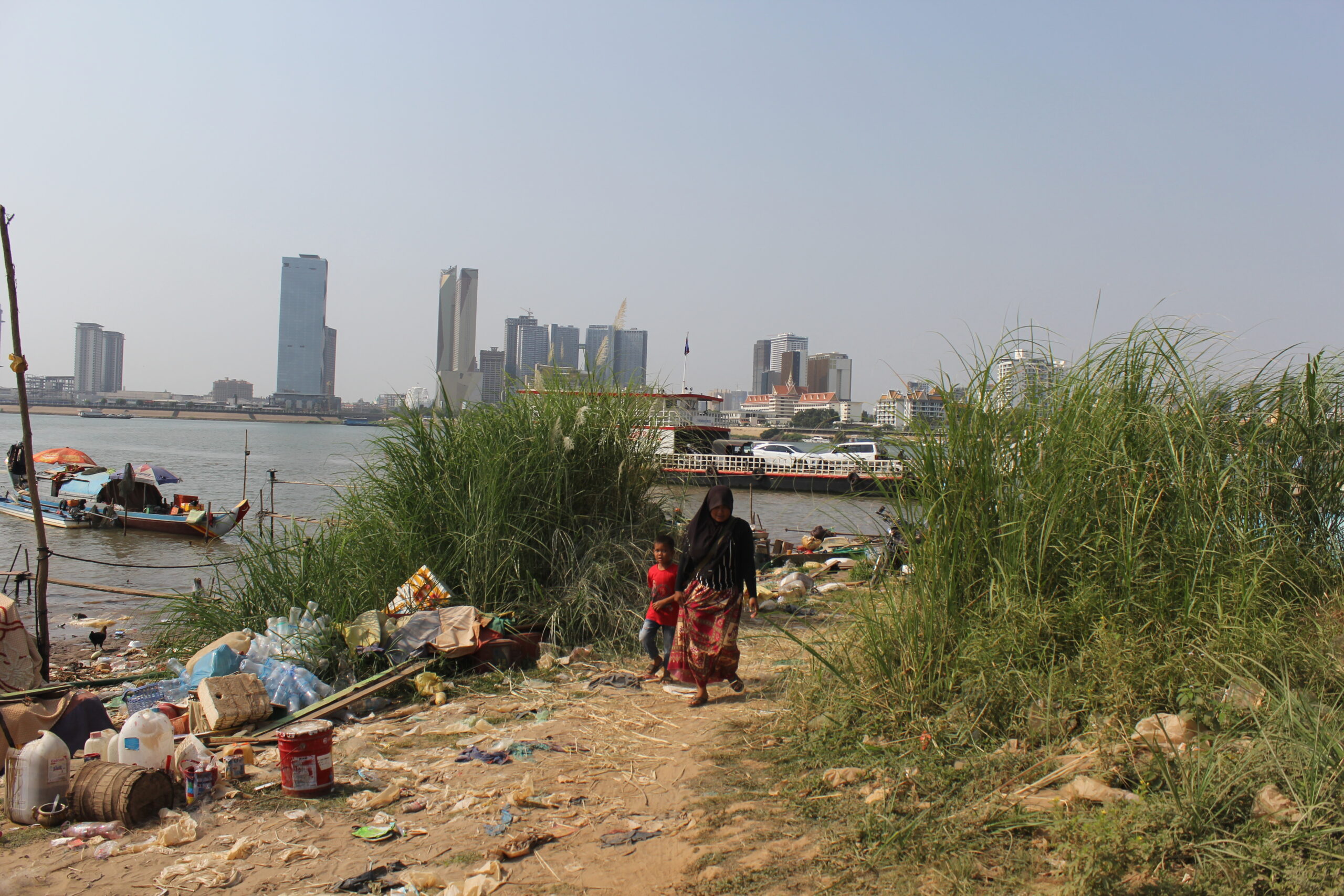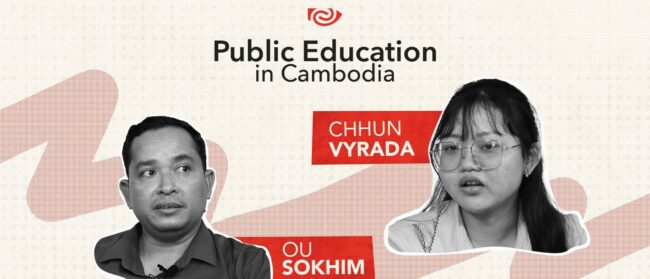Hello!
This is Andrew Haffner, editor in chief over here at Southeast Asia Globe. I haven’t written anything directly to you, our readers, for a while now. It’s feeling pretty good though, so we’ll have to make it a more regular thing.
You’re hearing from me because we’re trying something new, doing a little experiment by introducing one of our writers in a more personal way. The idea here is to open a window into their reporting process, to give readers a sort of “behind the scenes” look at what goes into producing a feature for Southeast Asia Globe. We’re still experimenting with the format of this – moving forward, I’m thinking it could be like a short podcast episode – so please do let us know what you think of it.
For our inauguration, we’ll be hearing from our contributor Daniel Zak, who wrote an in-depth article for us this week about the minority Cham population around Phnom Penh here in Cambodia. This majority-Muslim ethnic group has a storied history in our region and, in recent decades, some of their communities have taken to living on their fishing boats in response to persecution on land. Their bright blue boats have long been a visible fixture on the Mekong and Tonle Sap rivers in the heart of Phnom Penh.
Daniel has long taken an interest in distinct cultures within the Cambodian mainstream. So when he pitched me this article about Cham boat-dwellers forced by ecological pressures to leave their traditional livelihoods behind, I took note. He and his friend and colleague Tith Chanthara went out to meet these people and speak with them about the process of going to land. The result is a very human report about what that looks like, bumps and all.
If you haven’t already, give the piece a read at the link above. Then, check out the Q&A below to learn more about how this project came together.
Andrew:
Just to jump right in, tell me a bit about why this subject was something you wanted to pursue as a journalist.
Daniel:
In general, I feel that I’m personally very interested in minority groups in Cambodia.
This is not the first story I’ve written about these types of people. Their stories are something that I feel I’m specialising in, which I’m starting to be very happy with. And I think it’s important to keep an eye on these issues they face because, especially with something like this that stems from ecological problems – people think of these types of things as something which will someday, in the future, mess up all of our lives.
But that’s the wrong way to think about it. It’s not a specific wall. Many lives are already being affected by this sort of thing, and the people who get hit first tend to be these types of [minority] groups.
What’s happening to the Cham now will happen to basically everyone as the decades go on.
A:
Yeah, I guess some of the factors that make them more marginalised in Cambodia also make them especially vulnerable to these ecological changes. When you decided to pursue this story, what was that first step that you took in the reporting process?
D:
I always start with going into [academic research platform] JSTOR and basically reading these sorts of academic papers that have been written about the subject, even if it doesn’t actually factor that much into an article.
One of my favourite quotes is, “Everything is the way it is because everything was the way it was.”
Having a more academic understanding of the subject matter just makes me feel more comfortable when charging in and starting to ask questions. So when they start talking about their own history, I already have a grounding and understanding of what they’re talking about. It makes it a lot easier to understand.
A:
Yeah, that makes sense. Something that we liked about your piece was that it was very human. You had that historical background and some of the modern political context, but for the most part, it was stories about people.
There were very personal narratives that you put together to show this bigger picture of a society. I thought that was really cool.
D:
Yeah. I think that having the historical context actually really helps with that. I think it’s a big thing that’s missing in a lot of journalism, because when you go into it as just, “Oh, the Chams are a marginalised, poor group”, you’re missing a huge part of who they are and their identity. That they’re not just marginalised. They have quite a proud history and it gives them a lot of meaning in their lives to know they’re a part of that.
A:
Yeah, a very interesting history. They have this civilizational lineage that I think could be overlooked nowadays based on, right, their minority status, lack of their own country, whatever factor you want to go with. But I agree, that does add real depth to the things we see today.
Based on our prior conversations, you had been to some of these communities before, right?
D:
Yeah. Even before I started working in journalism, I was fascinated by them. I really do enjoy looking into subcultures. So I spent a day just walking around with Chantara, who worked on the story with me.
We just went around the Cham community and started asking people stuff. At one point I even considered maybe I should just say I’m a journalist so that they don’t feel so weird when I ask them questions. So it was fun to go back and actually have a reason to ask them about these things.
A:
So when you interact with folks in these communities, what kind of things did you have in mind when you made that approach? Were there any considerations that you had to take?
D:
Not really. We went to the community and walked up to the very first people we would find to tell them about the story we were working on, and ask who we should talk to. Originally, I knew that I wanted to interview somebody who successfully transitioned from fishing into a different profession, and it was pretty hard to find those people.
So most of the people we talked to were people who we originally just went up to for directions to find that first type of person. And we thought, “Oh, actually this person has their own perspective, may as well get it while we’re here.”
By the time we had actually found the people who I wanted to interview first, we ended up having most of the story.
A:
Was there stuff that you noticed during the reporting process that didn’t make it into the story?
D:
A lot, yeah. There were a lot of accusations back and forth within the community about how the land was distributed amongst the fishers.
The people who didn’t get it were not happy with the process. We also bumped into this one fisher, and this was a little weird, but he was better dressed than all the other fishers. And he had a metal platform to get onto his boat and he was the only one that waved at us like, “Oh, come talk to me.”
And then he just said, “No I make a lot of money fishing, these other guys are lying, they’re lazy, that’s why they’re not getting enough fish. There’s no ecological damage here.”
And we noticed no other boats were docks next to his and it seemed like nobody liked him. [Laughs] Yeah, it was very strange.
A:
That’s interesting, yeah. So of all the things that you learned that you weren’t able to include for reasons of space or format or whatever, what did you think is the most interesting bit that didn’t make it in?
D:
I would say that there was so much internal strife within that fishing community. I lived on a kibbutz before I moved to Cambodia, and I was always under this impression that in a small community things are so tight-knit, like it’s very difficult for corruption and things like that to germinate.
But here, people would be like, “That guy right over there is corrupt”, like pointing at him. And then the people next to him would say, “No, he’s great.”
So it was almost this microcosm of larger things, like they had their own fully functioning, polarised political system in this tiny community.


